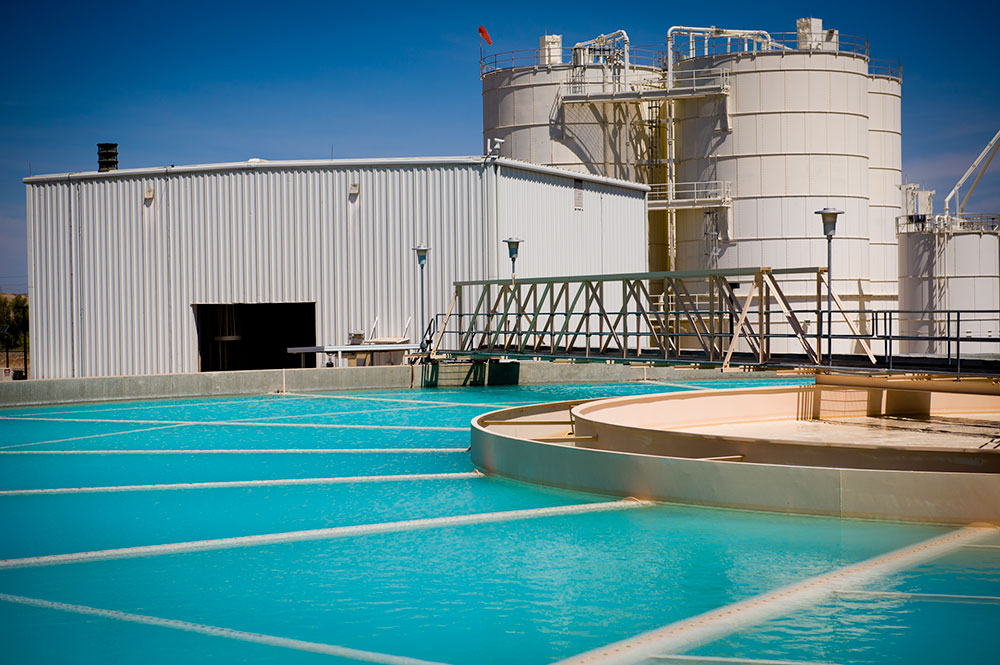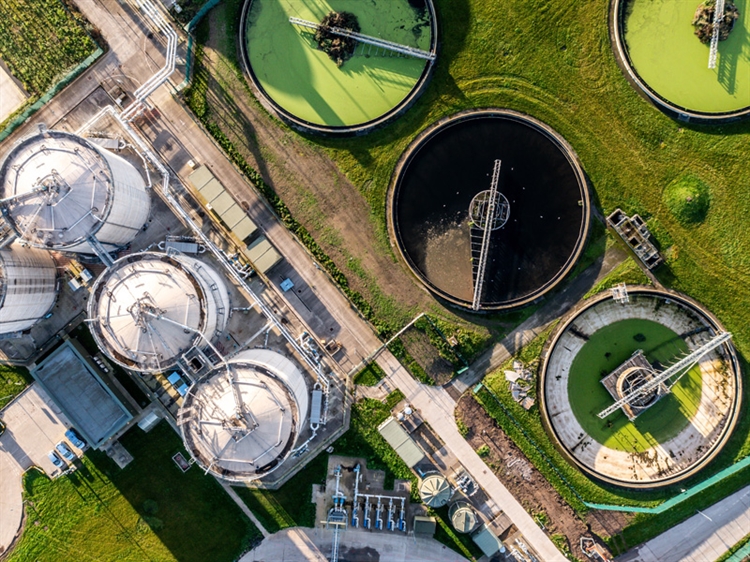Checking Out Water Technology Startups: Exactly How They Transform Sustainable Solutions
Water Technology startups are becoming critical gamers in the pursuit for lasting options to global water issues. These firms utilize ingenious technologies to improve water performance and administration. Their contributions resolve pushing challenges such as deficiency and contamination. In spite of their capacity, they face numerous challenges that can influence their success. Comprehending these dynamics clarifies the future of water sustainability and the function these startups may play in forming it.
The Value of Water Technology in Today's Globe
As global water deficiency increases, the relevance of water Technology comes to be increasingly noticeable. Water Technology plays a vital duty in attending to the obstacles positioned by lessening freshwater sources and increasing need. It encompasses a broad series of advancements, including innovative filtration systems, wastewater therapy innovations, and clever irrigation remedies. These developments not just boost the efficiency of water use yet also promote lasting methods across numerous sectors, consisting of agriculture, market, and urban advancement.
The significance of water Technology prolongs past source monitoring. It fosters resilience against climate modification effects, such as floodings and dry spells, by providing flexible services for water preservation and administration. Additionally, it supports public wellness by making sure accessibility to tidy and secure alcohol consumption water. As the world faces expanding water-related obstacles, the assimilation of advanced water innovations is crucial for fostering sustainable development and protecting water accessibility for future generations.
Cutting-edge Solutions From Water Technology Startups
While traditional methods to water administration have actually offered their objective, a new age of water technology start-ups is reinventing the industry with innovative solutions (Water Technology Startups). These firms utilize innovative innovations to attend to pressing water issues, such as deficiency, contamination, and ineffective distribution. Several start-ups use synthetic intelligence and artificial intelligence to maximize water usage and anticipate demand, causing more lasting methods
Furthermore, a number of firms focus on creating innovative filtering systems that remove toxins and make water safe for intake. Others explore decentralized water therapy innovations, permitting neighborhoods to handle their water resources better. Some startups are introducing smart watering solutions that lessen water waste in farming, promoting ecological conservation.
Situation Researches: Effective Water Technology Startups
Various water Technology start-ups have become leaders in resolving global water difficulties with cutting-edge approaches. One significant instance is Xylem, which concentrates on water analytics and smart facilities to maximize water usage and reduce waste. Their options have actually been executed in numerous towns, showing considerable renovations in water monitoring efficiency.
Another successful startup, No Mass Water, has actually created solar-powered hydropanels that remove water vapor from the air, providing sustainable drinking water in deserts. Water Technology Startups. This Technology has been released in a number of nations, making certain communities have access to clean water
Lastly, AquaVenture Holdings operates a varied profile of water-as-a-service remedies, dealing with water shortage through desalination and wastewater treatment. Their jobs have actually verified necessary in areas encountering serious water shortages, showcasing the capacity of cutting-edge water technologies to create long lasting, positive effects. These study highlight the transformative potential of start-ups in the water Technology market.
The Function of Smart Technology in Water Administration
Smart Technology plays a necessary function in modern-day water management by leveraging IoT applications to optimize source usage. Information analytics improves performance by supplying actionable understandings, while remote tracking remedies allow real-time oversight of water systems. With each other, these developments change exactly how water is taken care of, promoting sustainability and functional efficiency.
IoT Applications in Water
As water deficiency and administration obstacles increase worldwide, the assimilation of Internet of Points (IoT) applications has arised as an essential solution in enhancing water sources. IoT Technology facilitates real-time surveillance and analysis of water supply, allowing more effective usage and administration. Sensors released in various water facilities can track quality, circulation rates, and leakage, providing beneficial data to stakeholders. This information encourages utilities and customers to make enlightened decisions, lowering waste and improving preservation initiatives. Additionally, wise watering systems utilize IoT to enhance water shipment for farming, guaranteeing that plants obtain the correct amount of water at the correct time. On the whole, IoT applications are changing traditional water management methods, promoting sustainability and strength in water source systems.
Information Analytics for Performance
Harnessing data analytics is vital for improving effectiveness in water monitoring. Water Technology start-ups are significantly making use of innovative analytics to optimize resource allocation and decrease waste. By evaluating data from various sources, these startups can identify patterns and trends that inform better decision-making. Predictive analytics can anticipate water need, enabling energies to readjust supply appropriately, therefore reducing excess and lacks. In addition, real-time information handling makes it possible for the prompt detection of leaks and ineffectiveness within circulation systems, greatly reducing operational expenses. In addition, data-driven understandings encourage stakeholders to apply targeted preservation strategies, promoting sustainable methods. Essentially, incorporating data analytics right into water administration not only enhances operations yet also promotes lasting sustainability in water resource usage.
Remote Tracking Solutions
While conventional water monitoring systems usually have a hard time with inefficiencies, remote surveillance options are changing exactly how water resources are handled. These innovative technologies make it possible for real-time data collection and evaluation, allowing stakeholders to keep an eye on water quality, flow prices, and usage patterns from afar. Using sensing units and IoT devices, remote surveillance supplies immediate insights that promote proactive decision-making. This change not just enhances functional performance however additionally advertises sustainability by reducing water waste and enhancing source appropriation. Additionally, remote monitoring systems can determine possible issues before they rise, thereby reducing the danger of contamination or framework failure. As water Technology startups remain to establish these remedies, the industry is poised for considerable innovations in lasting water monitoring practices.
Difficulties Dealing With Water Technology Startups
Water Technology start-ups run into significant challenges that can hinder their growth and success. Key problems include protecting sufficient funding, navigating with intricate governing settings, and completing in a congested market. These challenges need calculated planning and development to conquer.
Funding and Investment Challenges
Innovation in water Technology holds tremendous possibility for attending to worldwide challenges, start-ups in this market frequently face substantial funding and financial investment hurdles. Several capitalists stay careful, perceiving the water field as high-risk as a result of its complicated regulatory landscape and lengthy development timelines. In addition, startups frequently battle to demonstrate prompt earnings, which can deter possible backers. Conventional equity capital might neglect water modern technology, favoring fields with quicker returns, such as tech or customer products. Protecting gives and government funding can be affordable and time-consuming, additional making complex monetary security. Therefore, lots of cutting-edge water Technology startups discover themselves in a perilous position, calling for creative funding approaches to navigate these monetary obstacles and attain their goals
Governing Compliance Issues
Steering regulative compliance is a considerable difficulty for start-ups in the water Technology field, as they should come to grips with a myriad of neighborhood, nationwide, and international policies. These laws frequently include water top quality criteria, environmental protection legislations, and security methods, which can differ extensively across jurisdictions. Startups may find it challenging to browse this facility landscape, specifically when scaling procedures or getting in brand-new markets. The costs connected with conformity can be significant, drawing away sources far from innovation and product growth. Additionally, hold-ups in getting essential authorizations or qualifications can prevent growth and market entrance. A robust understanding of regulatory structures is crucial for these start-ups to assure lasting operations and avoid possible lawful consequences.
Market Competition Characteristics
As water Technology startups emerge in an affordable landscape, they encounter many difficulties that can hamper their development and innovation. Established business frequently dominate the marketplace, leveraging resources and experience to keep their settings. Startups have problem with restricted funding, which limits r & d capacities, making it tough to compete on Technology and pricing. In addition, the quickly evolving nature of water modern technologies demands consistent adaptation, more straining check here start-up sources. Regulatory obstacles can make complex market entrance, as conformity with environmental standards is important yet expensive. Finally, drawing in competent talent in a particular niche field offers one more obstacle, as larger companies may supply more enticing employment plans. As a result, these factors produce an intricate environment for water Technology startups aiming to do well.

The Future of Water Technology and Sustainability

The future of water Technology will likely concentrate on integrating expert system and information analytics to enhance water distribution and use patterns. By taking advantage of real-time data, business can predict scarcities and take care of resources better. In addition, sustainable practices will certainly end up being a cornerstone of the sector, motivating circular economic situations where water is recycled and dealt with. Inevitably, the continued advancement of water Technology will be vital in developing resistant infrastructures efficient in fulfilling the challenges positioned by environment change and population growth while advertising environmental stewardship.
Often Asked Inquiries
What Are the Trick Metrics for Examining Water Technology Startups?
Trick metrics for examining water Technology startups include market possibility, scalability, customer purchase expenses, earnings growth, technology innovation, regulatory compliance, environmental effect, competitive benefit, and team expertise, all essential for identifying long-lasting feasibility and success.
Just How Can People Assistance Water Technology Innovations?
People can sustain water Technology advancements by purchasing start-ups, supporting for plan adjustments, taking part in community initiatives, sharing expertise about sustainable methods, and promoting understanding of water concerns via regional occasions and social media.
What Are Usual Financing Resources for Water Tech Startups?
Typical funding resources for water technology start-ups include equity capital, federal government gives, crowdfunding platforms, angel investors, and corporate collaborations. These economic opportunities assist facilitate innovation and growth in lasting water administration innovations.

Which Industries Advantage The Majority Of From Water Technology Advancements?
Industries such as farming, power, production, and community services benefit substantially from water Technology innovations. These technologies improve water effectiveness, decrease costs, and advertise lasting methods, ultimately adding to environmental conservation and source administration.
Are There Any Governing Difficulties Specific to Water Modern Technology?
Yes, water Technology deals with regulatory obstacles, consisting of compliance with ecological requirements, allowing processes, and varying local policies. These intricacies can impede development and slow the application of new technologies in the water monitoring industry.
Water Technology startups are arising as important players in the pursuit for sustainable solutions to international water problems. As global water shortage heightens, the relevance of water Technology comes to be progressively apparent. Others check out decentralized water treatment innovations, allowing neighborhoods to handle their water resources a lot more effectively. One more effective startup, Zero Mass Water, has actually established solar-powered hydropanels that extract water vapor from the air, supplying sustainable alcohol consumption water in arid areas. Their projects have actually proven crucial in regions encountering severe water lacks, showcasing the potential of ingenious water technologies to produce lasting, positive effects.